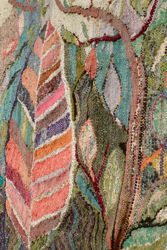Virtual seminar Anxiety and depression: polyvagal theory and the body dialogue |
With Dr. Gerhard Zimmermann – March 2021 |         |
Virtual Seminar |
Friday 12th March 2021 (6pm - 8pm) You will recieve a login link to the Zoom meeting. |
|
The Seminar Traumatic experiences are often stored as incoherent memory events. They are experienced as something that is rather happening in the present and not as something that is long gone. Somatic markers are part of the implicit traumatic memory and can be triggered at any time. Anxiety and depression are defensive patterns and are accompanied by intense sensations and emotions. In an insecure environment that was unpredictable and untrustworthy, children are more likely to survive if they are anxious and/or depressed. The children are then less visible and try to avoid risks. This is a survival mechanism, an adaptation to a non-caring environment. Anxiety and depression are basically "an ingenious harm reduction strategy" (Janina Fischer). At the same time it has been dangerous to feel good. Feeling good may have triggered the parents. Feeling emotions and general needs were per se problematic. Basic needs had to be suppressed. Therefore, the question "How did the anxiety/depression help you to survive?" is important and appreciative. It allows an acceptance of one's own behaviour pattern and reduces "fighting against it". Both are important for a change of behaviour. It makes sense, for example, to withdraw as a child if there is not enough support, and to save your resources. Anxiety and depression are the consequence of a traumatic dysregulation of the autonomic nervous system and can express itself through many symptoms such as uncomfortable body sensations, pain, hypersensitivity or physical exhaustion. The dysregulation can lead to sympathetic overexcitation (anxiety, aggression) as well as parasympathetic underexcitation (depression, exhaustion). Both conditions usually alternate, but can also dominate individually over a certain period of time. Withdrawal and immobility, in turn, increase the feeling of fear and helplessness and lead to inability to act. A moderate mobilisation of the "frozen" behaviour pattern can bring the organism back into the window of tolerance. This must be done in a structured way and requires guidance. The organism needs either to be mobilised from a dorso-vagal underexcitation (shutdown) or gently calmed down when excited too much. When the ventral vagus is active again, we become curious about what's coming. We are better able to make plans and be active. We feel more alive and connected to our own strength. It is also very important to notice your triggers and to actively deal with them. Curiosity and a playful exploration are part of the self-dialogue. In the seminar, we will explore new ways of addressing triggered emotional states by applying self-compassion which in turn activates the reward system in the brain. Self-compassion has a loving and caring quality and differs from empathy. It plays an important role in emotional learning and healing. This introductory seminar will provide the basis for the following seminars which will focus on practical application and individual work with clients. |
||
 |
||
Seminar: £40 |
||
For more information and to book your place, please contact: |
||
|
||
| "EACH PERSON HAS WITHIN THEMSELVES THE POTENTIAL TO INFLUENCE AND TAKE CHARGE OF THEIR OWN LIVES" | ||
|
||
